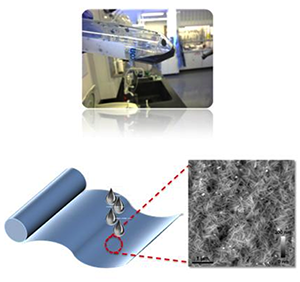
The Segalman group works to both understand and control the structure of soft matter on molecular through microscopic lengthscales to optimize properties for applications ranging from energy (solar and thermal) to biomaterials. For example, while molecular structure affects the electronic properties of semiconducting polymers, the crystal and grain structure greatly affect bulk conductivity, and nanometer lengthscale pattern of internal interfaces is vital to charge separation and recombination in photovoltaic and light emission effects. Similarly, biological materials gain functionality from structures ranging from monomeric sequence through chain shape through self-assembly. Their group is particularly interested in materials for energy applications such as photovoltaics, fuel cells, and thermoelectrics.



